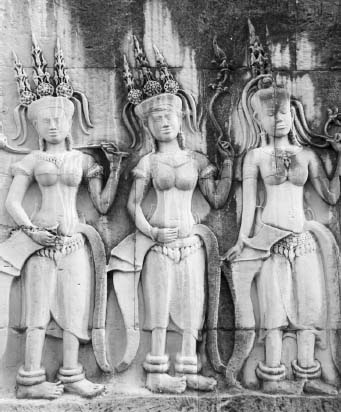HinduismReligious Beliefs |
Do Hindus believe in devils? |
No single personification of evil functions in Hindu tradition quite like the Satan of other traditions. Multiple embodiments of malice, perversity, and general negativity are called asuras, or demons. Ancient myths tell of the ongoing struggle between the devas, deities, and the demons for control of the cosmos. Originally the demons were not necessarily considered altogether evil. Even their generic names are ambiguous: deva is from the same root as “devil,” while asura shows up in the name of the main Iranian deity, Ahura mazda. Both deities and demons descended from Prajapati, Lord of Living Things. Demons were at first ethically on a par with the gods. But the gods generally managed to win more battles than their siblings. Eventually the deities came to be known as more clever and more truthful. Finally, the gods achieved immortality while preventing the demons from winning that prize. Demons retained the ability to assume virtually any form in their attempts to disrupt cosmic affairs. Powerful people intent on evil could enlist the aid of demons to carry out their wicked deeds. Some demons came to represent impersonal negative qualities, such as ignorance. Lesser but still troublesome forces known as bhutas remain important in the lives of many villagers. Bhutas are the spirits of those who died violently, or too young, or after betrothal but before marriage, for example. Resentful and frustrated, they wander about harassing the living unless appeased by proper rituals. Hindus believe that ultimately the divine power will overcome all demonic forces.

Stone devatas in Angkor Wat, Cambodia.
